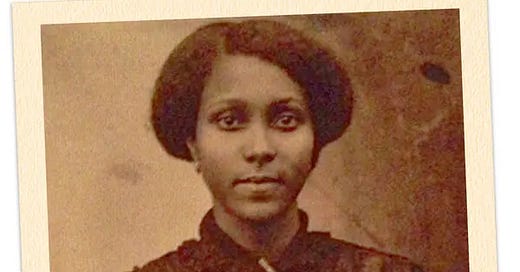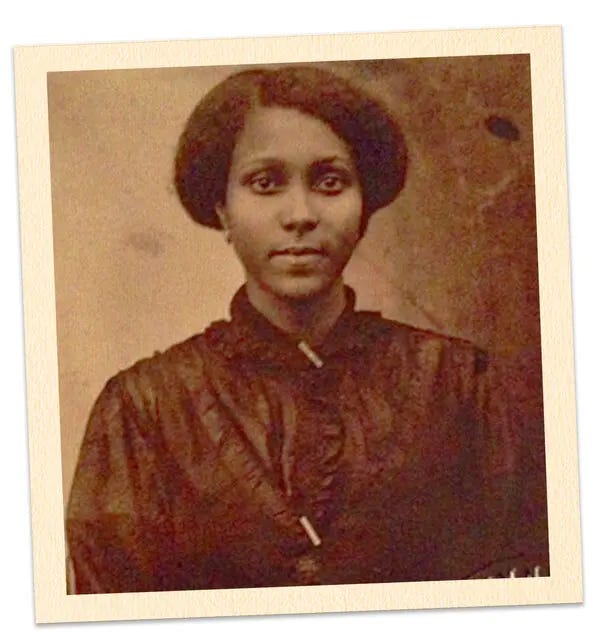Today In Black History
Louise Little, Civil Rights Activist and Mother of Malcolm X
Issue #532 Today In Black History, Thursday, March 14, 2024
Today’s Black History WOW!
Helen Louise Langdon was born on the Caribbean island of Grenada in 1894 or 1897. Her mother, Edith Langdon never revealed the name of Louise’s father, who may have been a white man who raped Edith.
Louise was a baby when Edith died, so she was raised by her grandmother Mary Jane Langdon, and her aunt Gertrude. Mary Jane and her husband, Jupiter, who also died when Louise was small, were captured in West Africa when they were young but were freed by the British Navy sometime after 1833 when imperial Britain banned slavery.
The Langdons celebrated their African roots and Grenada’s proud legacy of rebellion against occupiers while living a code of self-reliance. They farmed their own land and each plied a trade, Jupiter as a carpenter, Mary Jane as a herbalist, and Gertrude as a seamstress.
Louise studied at a local Anglican school, excelled in writing, and spoke English, French, and Creole.
At about 21, she embarked alone on a journey of more than 3,000 miles, from the port of St. George in Grenada to Montreal, where her uncle had emigrated. He introduced her to the growing Black nationalist movement led by Marcus Garvey. Louise Langdon was immediately drawn to Garvey’s ethos of self-determination and Pan-African confraternity — as was Earl Little, a Baptist minister, and recent immigrant who had escaped the violence of Jim Crow Georgia. The two married after meeting at a Garvey event.
The young couple arrived in Omaha — their first assigned post as Garvey missionaries — in the wake of the Red Summer of 1919, when dozens of American cities were convulsed by anti-Black racial violence. The thousands-strong lynch mobs in Omaha were particularly notorious.
Wherever they settled their growing family, the Littles were a provocation. Not only did they spread Garvey’s bold rhetoric, but their own literacy and economic autonomy were also an affront to white supremacy. When one of their homes in a white area burned down, Earl, a skilled carpenter, quickly rebuilt it. Louise worked as a seamstress and sold her own designs.
Most of the family’s livelihood came from farming and hunting — on land they owned, a rarity in sharecropping America. Their family car was another anomaly — as was Louise’s driving it. They were continually threatened by white neighbors and officials, and many Black residents were afraid to be seen with them.
The Littles’ family life was shattered in 1931, when Earl died after he was strangely run over by a streetcar in Lansing, Michigan. Even with help from her oldest children, Louise struggled to keep the family fed in the depths of the Great Depression and escalating harassment.
First, an insurance company insisted that Earl had committed suicide and refused to pay out on the $10,000 policy that the Littles had so carefully funded. When Louise reluctantly accepted federal relief money, local officials routinely withheld her relief checks while pushing her to sell her land.
Then, a judge first removed Malcolm from the home, then ordered Little’s other children to be placed in foster care. Soon after, in 1939, the judge engineered Little’s commitment to the Kalamazoo (Michigan) State Mental Hospital. Louise Little was finally released in 1963, after years of petitions by her children.
In her last years, Louise Little lived quietly with one of her daughters in the Black community of Woodland Park, Mich. Her ashes were scattered there after her death, on Dec. 18, 1989. She was believed to be 91.
Louise Little was a strong and determined woman who instilled in her children the values of self-respect, dignity, and the importance of fighting for what is right. She faced many challenges in her life, but despite these hardships, she continued to raise her children with love and strength, instilling in them a sense of pride in their African and Caribbean heritages.
Louise Little's legacy lived on through her son, Malcolm X, who became a powerful voice in the civil rights movement. He carried on his mother's teachings of self-respect and dignity, advocating for the rights of African Americans and challenging the systemic racism that existed in society.
Today In Black History
- In 1793, Lt. Governor Simcoe of Upper Canada passed legislation against the importation of slaves after a female slave was forcibly transported to New York state to be sold.
- In 1794, Eli Whitney received a patent for the cotton gin machine, spurring the expansion of the African slave trade.
- In 1821, the African Methodist Episcopal Zion Church was founded in New York.
- In 1917, the first training camp for colored officers was established in Des Moines, Iowa, by the U.S. Army.
- In 1958, the South African government prohibited the African National Congress.
- In 1991, the four police officers who savagely beat motorist Rodney King in Los Angeles were indicted.
- The “Comments” feature has been disabled. Instead, let’s discuss these facts in our community on Substack Notes. You can also read other Substack publications without subscribing to them when you join Notes.
This post is free to read/listen to for three days after publication. To have 365 24/7 access to all our posts and podcast episodes and financially support “We Are Speaking” for no more than $5 per month, please subscribe at the paid level. You will receive a 7-day FREE trial!






